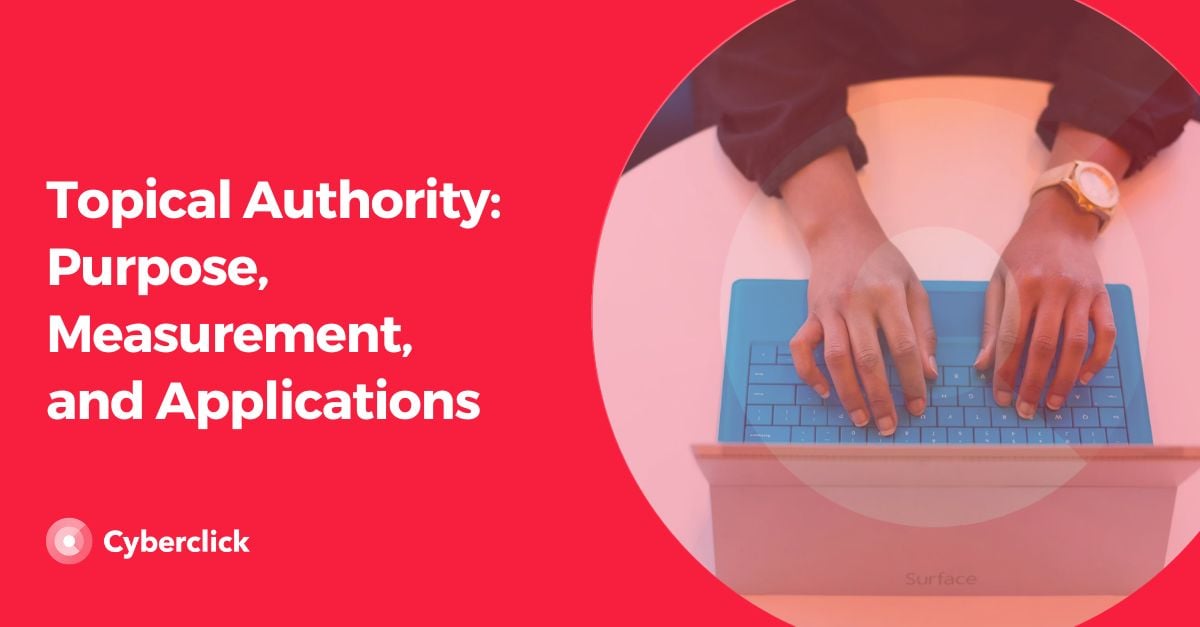Have you heard of the term topical authority? It often isn't as well-known as other elements involved in improving your website's search engine ranking. Nevertheless, let's take look at what this is and how you can integrate it into your content strategy. In this article, we'll explain everything about topical authority so you can implement it effectively and boost your SEO.
What Is Topical Authority?
Topical authority is when search engines consider a website to possess expert and reliable information on a specific niche.
For instance, if you have a website focused on sports and fitness, consistently publishing quality content over time can lead to you being recognized as a relevant page in the field by search engines like Google, and acquiring topical authority.
Topical Authority vs. Link Building: Why They're Not the Same
It's common for the concept of topical authority to be unfamiliar or confused with link building. Though topical authority is not a new term, it's understandable if it can be challenging to distinguish from link building, as both aim to enhance your website's search engine positioning by helping Google understand your page's content.
However, they differ in their operational mechanisms:
- Link building: Involves acquiring external links to your page, essentially obtaining backlinks.
- Topical authority: Focuses on consistently creating quality content on a specific topic and covering as much information as possible about that subject. Quality is essential, but it's equally crucial to align the content with the users' interests.
How Topical Authority Affects SEO
Topical authority plays a major role improving a website's SEO. Why? Because Google's search engine operates based on thematic associations. It categorizes websites by relating them to specific themes. Therefore, the more content you publish on a particular theme, the easier it becomes for Google to classify and position your website within that theme. In essence, working on topical authority is another way to increase the visibility and positioning of your website. SEO extends beyond keywords and links.
However, it's essential to note that topical authority is not a direct SEO positioning element, but it greatly aids the search engine's classification algorithms.
Do You Have Topical Authority?
Now that you understand what topical authority is, one of the most crucial phases is to determine yours. This is not an easy task, as Google has not provided much information about it, leaving this concept somewhat ambiguous and challenging to measure compared to other metrics.
However, one way to analyze your topical authority is to check how much interaction your content has received or if it has been shared. Above all, it's important to assess whether your content is useful, relevant, interesting, includes a sufficient number of articles, and addresses your audience's main concerns and questions.
How to Increase Thematic Authority
In addition to the basics we've covered throughout the article (such as creating valuable, quality content regularly), there are other actions you can take to increase your authority and improve your search engine positioning.
Create Topic Clusters
Topic clusters are articles that can be grouped under a generic theme and cover more specific aspects of it. They can be seen as branches of a broader subject. These clusters, in turn, may have other groups within them.
For example, if you write an article titled "Characteristics of French Gastronomy," this would be the main article, and articles like "Parisian Gastronomy" or "Food of Marseille" would be part of the cluster.
The key here is that articles forming part of a thematic group always have a link leading to the main article, and vice versa—the main article should include all links to existing clusters. This way, your content is grouped, making it easier for Google to find and position.
Analyze What Interests Your Audience
As mentioned, it's not only important to create enough quality content. To gain topical authority, it's crucial to create content that interests your audience, and to achieve this, it's essential to know their concerns. Remember that one factor that Google uses to determine if your page is authoritative is whether or not it address different points of conversation within a theme.
One of the best ways to know this is by conducting a keyword research.
Don't Forget Trends
Incorporating content about current trends should also be part of your strategy to gain topical authority. If you are ahead of the crowd, there may be fewer articles on the subject, making it easier for you to position. However, sometimes it's challenging to know what's trending in your niche, as these topics may lack search volume data. The good news is that some keyword analysis tools do provide this information. For instance, Google Trends is a completely free tool that offers such information, but the process can be a bit slow. Nevertheless, there are some paid tools that can provide a more agile experience.
Responsable de la estrategia de contenidos y visibilidad en Cyberclick, con enfoque Allbound y especialización en posicionamiento SEO, GEO y automatización con IA. Gestión avanzada del CRM con HubSpot: base de datos, workflows, lead nurturing, scoring y reporting. Experiencia en marketing digital, comunicación corporativa y periodismo, uniendo estrategia, creatividad y tecnología para captar y convertir leads cualificados.
Responsible for content and brand visibility strategy at Cyberclick, with an Allbound approach and specialization in SEO, GEO (Generative Engine Optimization), and AI-powered automation. Advanced HubSpot CRM management: database segmentation, workflows, lead nurturing, scoring, and reporting. Background in digital marketing, corporate communications, and journalism—combining strategy, creativity, and technology to attract and convert qualified leads.







Leave your comment and join the conversation